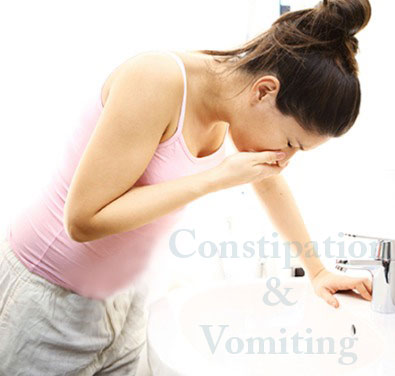Nursing Diagnosis for Constipation
Nursing diagnosis for Constipation: A nursing diagnosis for constipation obtained about any condition, including constipation, can be a part of the individual, family, or community experiences and/or responses to actual and/or potential health problems and/or life processes during the process of nursing a person back to health. For this purpose, we will remain with constipation and will do a nursing diagnosis of constipation. This particular nursing diagnosis for constipation was developed based on data obtained during the nursing assessment of an individual adult female. This will be a clinical judgment about experiences regarding the constipation of said adult female. Data will include experiences and conclusions pertaining to the period 12 January 2008 to 22 February 2008. The patient was an adult female aged 67.
After the Christmas and New Year season period in 2007, she developed a bout of constipation. She took constipation meds every day after that and would experience alternating periods of constipation and periods where she was not able to get to the toilet in time and would soil her underwear. The doctor then put her on medication for irritable bowel syndrome. This ended the cramping, but she still experienced constipation every day. This went on every day until 12 January 2008.
The patient woke up at 7 am on the morning of 12 January 2008, complaining of a headache. She also said that she had difficulty passing her stool. She was given headache medication and medication for constipation. She also took her chronic medication for high blood pressure.
A headache subsided a bit and the abdominal cramps stopped. At 11 am she was at the hairdresser to have her hair colored. She still had a slight headache. She suddenly complained that the smell of the chemical made her nauseous and then she went quiet just staring at everyone. It seemed as though was having a blackout of sorts. I realize that this is a nursing diagnosis for constipation, but all these other facts are totally related.
She was taken to the hospital and was diagnosed with having had a minor stroke. She was kept for a night and given meds for the stroke and for constipation. She seemed fine afterward, so she was given prescription meds on a repeat schedule of six months. She was then taken home.
All other symptoms went away, but constipation remained and got worse every day from then on. One night she experienced severe abdominal cramps and was taken to hospital for treatment. The doctor prescribed strong laxatives and enemas, and she was taken home again. She was given an enema every second day but still, could not pass stool on her own. She experienced severe cramps every day, and only when the enemas were given did she experience slight relief.
On the night of 6 February 2008, she woke up complaining of severe abdominal pain. Her abdomen was swollen to about 3 times its normal size and as hard as a rock. She actually then lost consciousness, and it was feared that she’d had another stroke as a result of the severity of the pain, and was brought to the hospital once again.
The doctor confirmed that she had severe acute constipation and tests were run to determine the cause. An x-ray was taken, and she was diagnosed with a fecal impaction of the colon. It seemed that as a result of constipation she had developed an obstruction of compacted stool in her colon that was too large to pass and too hard to be affected by the enemas.She was admitted to the hospital for treatment of an impaction.
She also underwent a brain scan at the time, and it was determined that she did not have a minor stroke after all, not then, and neither the first time that she had the blackout. The blackout was caused by a neurological reaction to constipation which was severe at that time already, and the second time she lost consciousness as a result of the pain caused by the impaction. One can, therefore, state that constipation pain can be severe enough to cause unconsciousness.
During her nursing diagnosis for constipation period in the hospital, she was treated for the impaction first by means of very strong laxatives. When this alone did not help, a daily enema with slightly warmed mineral oil was added to the laxatives, and the laxative dose was increased.
The combination of rest, strong laxatives, and a daily enema seemed to only partially work, and she was scheduled for surgery on 8 February 2008. On 8 February 2008, the fecal impaction was removed by using a sigmoidoscope, which is an instrument used to view the inside of the bowels and then manually break up and remove whatever is inside that needs to be broken up and removed.
After surgery, she was put on pain medication, antibiotics, medication for her digestive system and a special high fiber diet for chronic constipation. She was scheduled to be discharged from hospital on 11 February 2008. But on the evening of 8 February 2008 she experienced a heart attack, and because of the fact that she could still not move after the trauma experienced as a result of constipation and the fecal impaction, she could not reach the intercom button to call a nurse. She stopped breathing and was found a few minutes later by her eldest daughter who came to visit her. She was revived by means of CPR but remained in a coma and was on life support by means of instruments for the next two weeks after which she passed away on 22 February 2008, never waking up again after the heart attack.
This nursing diagnosis for constipation shows that, although not most of the time, there are cases where constipation can reach a stage of severity where a person can lose their life as a result of constipation. Albeit not by constipation directly, my mother in law did lose her life as a result of what constipation had done to her. This shows that no matter how stupid or embarrassing it may seem to a person, it is always better to contact a doctor sooner rather than later.
References
Except for the below reference, there are no specific references for this particular article since the article was written while recalling incidents of personal experience.
Nursing Care plan for Constipation – Newhealthadvisor




























